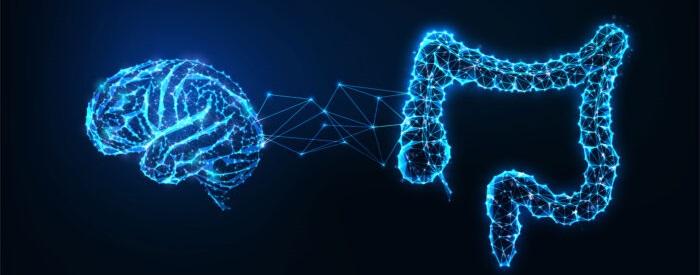


Why do antidepressants which target the brain cause nausea or stomach upset in people who take them? Yet people with intestinal diseases benefit from antidepressants, drugs once thought to work only in the brain?
The digestive tract – oesophagus (throat-to-stomach), the stomach itself, the small intestine and large intestine (appendix, colon and rectum) – works as a single entity. It is a complex network of nerve cells, supporting cells, proteins and chemical messengers, much like those in the brain. The bowel itself contains about the same amount of nerves as the brain or spinal cord.
Yet this network acts independently of both the brain and spinal cord, reacting to stimuli without instruction. It will continue to do this even when a person is incapacitated from severe brain or spinal injury. In fact, the only two digestive actions controlled by the brain are swallowing and defecation. Everything else is controlled by the nerve network in the bowel, known as the enteric nervous system (ENS). It is the gut’s brain, located in sheaths of tissue lining the oesophagus, stomach, small intestine and colon.
In 1996, US professor of anatomy and cell biology Dr Michael Gershon, made headlines in The New York Times when he called the digestive tract the “second brain”.
According to Dr Gershon, the ENS plays an important role in human happiness and misery, and this even instigated a new field of medicine known as neurogastroenterology – the interrelationship between neurology and the gastrointestinal (GI) system.
Although GI turmoil can most certainly sour one's mood, our daily emotional wellbeing may well rely on messages sent up from the brain below, to the brain upstairs.
Dr Gershon states that "95 per cent of the body's serotonin is made in the bowel".
Guess what else is in the gut? Major neurotransmitters serotonin, dopamine, glutamate, norepinephrine; nitric oxide; 24 brain proteins called neuropeptides; the major cells of the immune system; enkephalins (of the endorphin family); and a rich supply of bensodiazepines – the family of psychoactive chemicals that include Valium and Xanax.
Depression sufferers who prove unresponsive to antidepressants sometimes turn to vagus nerve stimulation. Electrodes are implanted under the skin near the neck to send electrical impulses through the nerves, essentially "mimicking the good feelings that the gut usually sends to the brain". Like a mega-dose of the rush you'd get from eating chocolate. Further, tissue lesions in Alzheimer's and Parkinson's sufferers have been found in the stomach wall, identical to those found in their brains – a discovery that may aid in early diagnoses.
While scientists already knew how important the ENS was, people who suffered ulcers, difficulties swallowing, or repeated stomach aches without any obvious cause, were told their symptoms were imaginary, emotional, and shuttled off for psychiatric help.
Doctors were right in ascribing these problems to the brain, Dr Gershon said, but they blamed the wrong one.
Dr Gershon is chairman of the Department of Anatomy and Cell Biology at New York–Presbyterian Hospital/Columbia University Medical Center, an expert in the nascent field of neurogastroenterology and author of the 1998 book The Second Brain (HarperCollins).
– Sue Pairaudeau
Research writer at Health 2000

